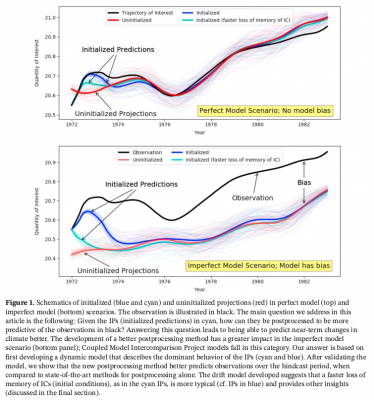Enhancing Skill of Initialized Decadal Predictions
Near-term prediction of climate, an important activity at national and international climate centers, is challenging because it is affected by both natural variability and external forcing. This work provides a methodology that enhances the predictive skill of near-term climate predictions.
The importance of being able to predict near-term changes in climate stems, for example, from the fact that our attempts to assess societal and ecological impacts of climate change and propose, study, and plan adaptation and mitigation strategies are only as accurate and useful as the climate change predictions are correct.
Near-term climate predictions are achieved by augmenting the external-forcing-related predictability realized in uninitialized projections with initial-condition-related predictability. The latter is achieved by appropriate observation-based initialization. However, and notwithstanding the considerable effort expended in finding such “good” initial states, a striking feature of current, state-of-the-art, initialized decadal hindcasts is their tendency to quickly drift away from the initialized state, with attendant loss of skill. We derive a dynamical model for such drift, and after validating it we show that including a recalibrated version of the model in a postprocessing framework is able to significantly augment the skill of initialized predictions beyond that achieved by a use of current techniques of postprocessing alone. We also show that the new methodology provides further crucial insights into issues related to initialized predictions.

